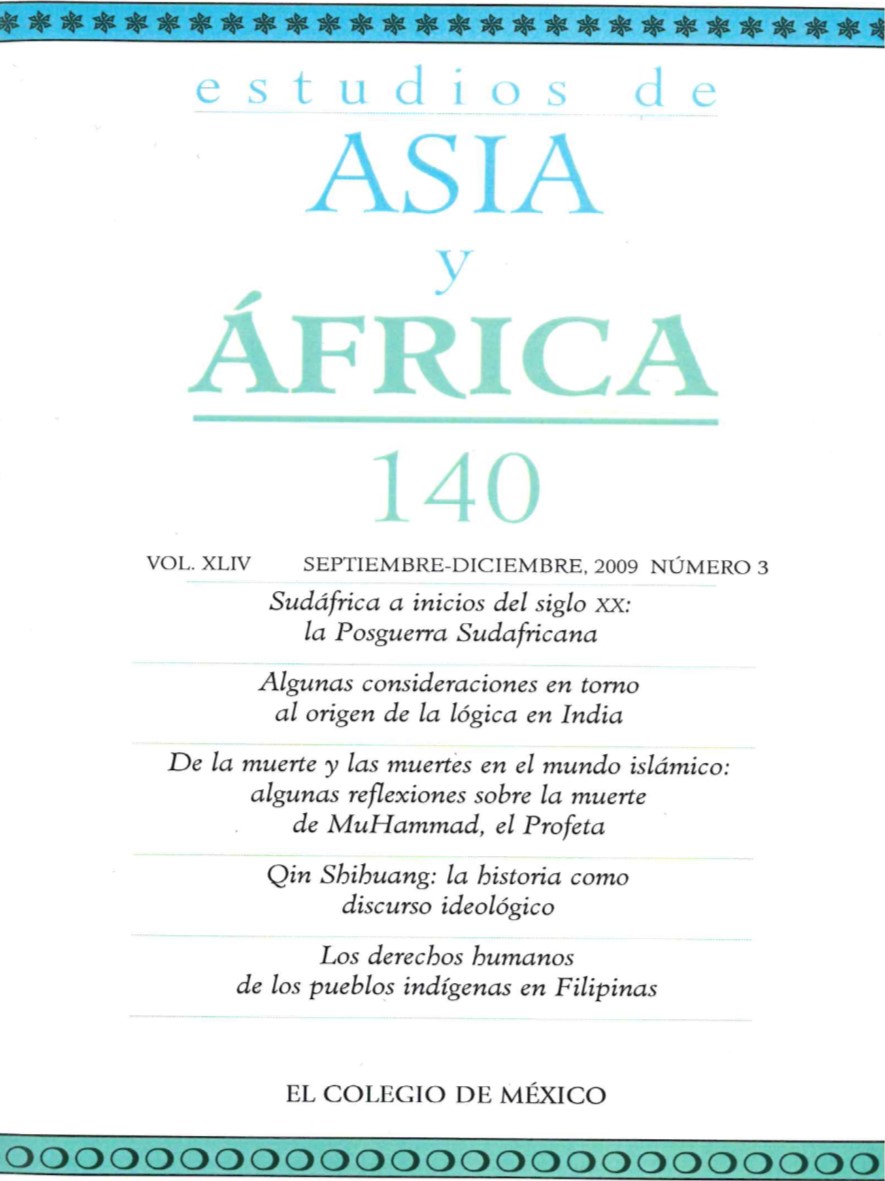Abstract
This article analyses the relationship between logic and irony in ancient India, following a current of thought that may be called “the followers of vitanda or the vitandins”. These thinkers, belonging to different schools suchas Cārvāka or Materialists, the Buddhist Madhyamaka and Hinduism Vedānta Advaita practiced a form of debate defined by the Nyāyasūtra as Vitandā. This type of debate was a critique, which aimed to demonstrate one’s opponents logical inconsistencies without establishing any thesis of one’s own. In order for this type of debate to take place, one side would establish a thesis whilst the other, the vitandin, refuted it without proposing any thesis at all, so that contesting a thesis did not commit the contester to accepting the contrary thesis. The paper explores the philosophical and religious consequences of this attitude in the context of ancient debates and the rise of a developed logic in India.
References
Arnau, Juan (ed./trad.), Abandono de la discusión de Nāgārjuna, Madrid, Ediciones Siruela, 2006.
Arnau, Juan, La palabra frente al vacío. Filosofía de Nāgārjuna, México, FCE, 2005.
Arnau, Juan, “Los vitandines. Argumentación negativa en India antigua”, Estudios de Asia y África, vol. XLII, núm. 1, pp. 77-99.
Borges, Jorge Luis, “Funes el memorioso”, en Ficciones, Madrid, Alianza, 1998.
Beal, Samuel (ed./trad.), Si-Yu-Ki. Buddhist Records of the Western World, trad. del chino de Huien Tsiang, Londres, Trubner & Co, 1969.
Corless, Roger, “The Chinese Life of Nāgārjuna”, en Buddhism in Practice, Donald S. Lopez (ed.), Nueva Jersey, Princeton University Press, 1995.
Dasgupta, S., A History of Indian Philosophy, Cambridge, 1922.
Davids, Rhys y Aung Shwe Zan (ed/trad.), Points of Controversy (Kathā-Vatthu), Londres, Pali Text Society, 1960.
Gadamer, Hans-Georg, Verdad y método. Fundamentos de una hermenéutica filosófica, trad. Ana Agud Aparicio y Rafael de Agapito, Salamanca, Sígueme, 1984.
Gómez, Luis O., “Two jars on two tables. Reflections on the ‘Two Truths’”, en Jonathan A. Silk (ed.), Wisdom, Compassion, and the Search for Understanding. The Buddhist Studies Legacy of Gadjin M. Nagao, Honolulu, University of Hawaii Press, 2000.
Granoff, Phyllis E., Philosophy and argument in late Vedānta: Śrī Harsa’s Khandanakhandakhādya, Boston, Reidel, 1978.
Jhā, Gangānātha (trad.), The Nyāya-Sūtras of Gautama (With the Bhāsya of Vātsyāyana and the Vārtika of Uddyotakara, 4 vols.), Delhi, Motilal Banarsidass, 1984.
Kangle, R. P., The Kautiliya Arthasastra: An English Translation with Critical and Explanatory Notes, Bombay, Bombay University Press, 1969.
Keith, Arthur, Religion and Philosophy of the Vedas, Harvard, Harvard University Press, 1925, p. 344.
Kuhn, Thomas, La estructura de las revoluciones científicas, trad. Agustín Contín, México, FCE, 2001.
Kuhn, Thomas, La tensión esencial, estudios selectos sobre la tradición y el cambio en la ciencia, trad. Roberto Helier, México, FCE, 1982.
Lopez, Donald S., The Madman’s Middle Way: Reflections on Reality of the Tibetan Monk Gendun Chopel, Chicago, Chicago University Press, 2006.
Matilal, B. K., Perception. An Essay on Classical Indian Theories of Knowledge, de B. K. Matilal, Oxford, Oxford University Press, 1986.
Matilal, B. K., The Character of Logic in India, editado por Jonardon Ganeri y Heeraman Tiwari, Nueva York, State University of New York Press, 1998.
Mookerjee, “The Nyāya-Vaiśesika System of Philosophy”, en The cultural Heritage of India (vol. I), p. 421.
Obermiller, E. (trad.), The History of Buddhism in India and Tibet by Buston, Delhi, Sri Satguru Publications, 1986.
Paniker, Agustín, El jainismo. Historia, sociedad, filosofía y práctica, Barcelona, Kairós, 2001.
Potter, Karl H. (ed.), Encyclopedia of Indian Philosophies, vol. 3, Advaita Vedānta, Delhi, Motilal Banarsidass, 1981, Encyclopedia of Indian Philosophies, vol. 8, Buddhist Philosophies from 100 to 350 A. D., Delhi, Motilal Banarsidass, 1995.
Rorty, Richard, Contingencia, ironía y solidaridad, trad. Alfredo Eduardo Sinnot, Barcelona, Paidós, 1991.
Rorty, Richard, “Wittgenstein, Heidegger y la reificación del lenguaje”, en Ensayos sobre Heidegger y otros pensadores contemporáneos, trad. de Jorge Vigil, Paidós, Barcelona, 1993
Sartorio Maulini, Rafael (trad./ed.), Sexto Empírico: Hipotiposis pirrónicas, Madrid, Akal, 1996.
Sharma, Priyavrat (ed./trad.), Caraka-Samhitā (4 vols., 1. Sūtrasthāna-Indri-yasthāna. 2. Chikitsāsthānam-Siddhisthānam. 3. Chikitsa Sthana (caps. 1-14). 4. Chikitsāsthāna-Siddhisthāna.), Delhi, Chaukhabha Orientalia, 1981.
Smart, Ninian, Doctrine and Argument in Indian Philosophy, Londres/Nueva York, George Allen and Unwin Ltd, 1969.
Solís, Carlos, Razones e intereses: la historia de la ciencia después de Kuhn, Barcelona, Paidós Ibérica, 1994.
Solomon, Esther, Indian Dialectics, 2 vols., Ahmedabad, Gujarat Vidya Sabha, 1976, p. 34.
Staal, Frits, The Science of Ritual, Bhandarkar, Institute Press, Poona, 1982.
Tucci, Giuseppe (ed.), Pre-Dinnaga Buddhist Texts on Logic from Chinese Sources, Madrás, Vesta Publications, 1981.
Wittgenstein, Ludwig, Investigaciones filosóficas, trad. Alfonso García y Ulises Moulines, Barcelona, Altaya, 1999.
This work is licensed under a Creative Commons Attribution-NonCommercial-NoDerivatives 4.0 International License
Copyright 2022 Estudios de Asia y África


